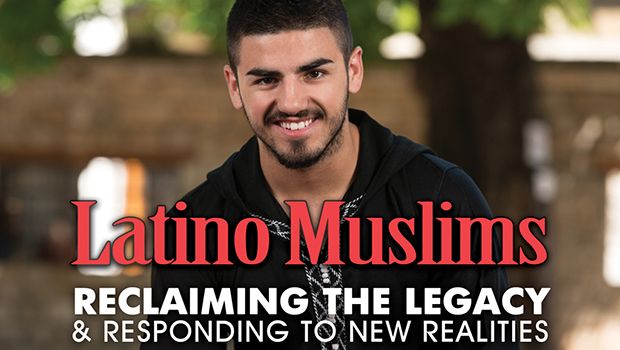Muslim sectarianism is one of the greatest challenges for Muslims in this century. It affects Muslims worldwide and is responsible for much of the discord in local mosques and the splitting of Muslim communities.It contributes to widespread disunity, displacement of populations, and intra religious killing amongst Muslims around the globe. So just what is Muslim sectarianism, and how is sectarianism viewed by the sharia?
For starters, we should know that there is no singular type of sectarianism. Muslim sectarianism has many forms and manifestations. Some are extremely violent and harmful, and some are committed to non-violence. Some sects are hyper-cultish with elaborate rituals and liturgical nuance, and some are very simple. Some sects require initiation, and some don’t. Some groups are descriptive in their doctrine but not necessarily sectarian in the sense of being narrow-minded or exclusionary; and some are intolerant at their core but vague in their description. Muslim sectarianism is a complicated phenomenon with often deadly consequences. It reveals itself in varying ways according to time, place, people, and sub-ideology. Some Muslim sects are relatively new to the fray and some are hundreds of years old. Some are built around charismatic individuals and others are built around ideas or supplemental philosophies. Some sects are enduring and many others are long forgotten, brief flashes of energy on the timeline of history.
The Meaning of ‘Sectarianism’ and Its Denunciation in the Quran
Let’s first take a look at the meaning of the word.According to the New Shorter Oxford Dictionary, a sect is a body or group of people subscribing to views that are divergent from other people of the same religion, usually the orthodoxy; and a sectary is a person who is zealous in the cause of his sect. In common usage, “sectarian” connotes bigotry, discrimination, or hatred arising from attaching relations of inferiority and superiority to differences between subdivisions within a group.
In the Arabic language, hizb can simply mean a group of people, as in the following verse: “And when the true believers saw the clans, [confederate forces] they said: This is that which Allah and His messenger promised us. Allah and His messenger are true. It did but confirm them in their faith and submission” (Quran, 33:22). However, hizb is often used in the Quran in a pejorative way, to denounce sectarianism. One example is as follows: “And surely this, your religion, is one religion and I am your Lord, therefore be careful [of your duty] to Me. But they cut their religion among themselves into sects, each part [hizbin] rejoicing in that which is with them” (Quran 23:52-53). Other verses denouncing sectarianism include 3:19, 6:159, and 23:53.
Yet, every Muslim sect has their arguments as to why they are not a sect, why they are not sectarian, or why they are a sect and, and in their assessment, the only true exponents of Islamic doctrine. The general rule of Islam with regards to sectarianism is to avoid it:“And hold firmly to the rope of Allah all together and do not become divided. And remember the favor of Allah upon you — when you were enemies and He brought your hearts together and you became, by His favor, brothers. And you were on the edge of a pit of the Fire, and He saved you from it. Thus, does Allah make clear to you His verses that you may be guided” (Quran 3:103).Allah forbade the Prophet (peace be upon him) from supporting sectarianism in our religion, and, as a deterrent to sectarianism, the Prophet warned the people from arguing about religion and religious doctrine. The Prophet (pbuh) said, “No people ever went astray, after they were guided, except that they were overcome by arguing”(Tirmidhi).
Tackling Muslim Sectarianism
Effectively tackling Muslim sectarianism in the Muslim world is extremely difficult. It’s hard to talk about it without arousing sensitivities. Additionally, addressing it is not a palatable frontline topic right now;and thirdly, Muslim sectarianism has been around for a long time so we have become desensitized to it. Thus, many of us have simply resigned ourselves to live with it and accept that there is nothing that we can do about it. However, not all of us have settled for acquiescent silence on this issue.More and more Muslims all over the world are getting sick and tired of sectarianism and its often-deadly consequences.
Muslims and major Islamic organizations in the United States are increasingly finding ways to unpack this volatile topic and sift through it, not by analyzing or trying to debunk the ideology of every orthodox or heterodox sect of Islam, but by pushing the conversation to the surface, and working to establish communities that embrace Muslim diversity. In my opinion, Muslims living in the United States may have a somewhat better opportunity than others to break real ground on the issue of Muslim sectarianism because in the U.S. Muslim communities are relatively young in comparison to the Muslim world in general. They are still forming, and still developing a domestic identity. Dozens of masaajid in the United States at least, are requiring that new imams be thoroughly conversant in English in addition to their birth languages, and to be mentally and emotionally equipped to engage the full spectrum of Muslim diversity in the masaajid where they serve. More and more American Muslim leaders are openly acknowledging our challenges with sectarianism and intra religious bias,and looking for ways to address it responsibly, without intolerance or contentiousness.
Prophet Muhammad (pbuh) practiced a simple Islam based upon tawheed (monotheism). He defined many of the principles of non-sectarianism throughout his life as well as during his farewell sermon when he said, “There is no superiority of an Arab over a non-Arab or of a non-Arab over an Arab, except by piety…” He cemented his disdain for sectarian practices when he said, “Do not return after I’m gone to being like unbelievers, some of you striking the necks [fighting] of others.”
There is no one way to combat Muslim sectarianism. Confronting it has less to do with polemics, and dissecting ideological arguments for or against every Muslim sect, than it has to do with promoting Muslim unity across racial, ethnic, and ideological lines —despite the human inclination to divisiveness.Striving for unity is not the choice made by everyone.But certainly there are many people who want to be unified, and by all accounts, there are a lot of Muslims, all over the world, who want to be united. At the end of the day, as many Muslims from all races and ethnicities are starting to understand, we are morally mandated to eschew sectarianism:“Be not like those who are divided amongst themselves and fall into disputations after receiving Clear Signs: For them is a dreadful penalty” (Quran 3:105).
The United States of America is a new frontier for Muslims. Nearly three-quarters of American mosques were established after 1980 which makes most organized Muslim communities less than 40 years old. There is still ample time to address Muslim sectarianism in our country in a sane, intelligent, and rational way, and by the grace of Allah, many Muslims are rising to the occasion. We must create Muslim communities that are equally open and welcoming to everyone— White, Black, Latino, Arab, Pakistani, Indian, Asian, African, low income, high income, educated, and undereducated. Muslims living in the United States, as well as in Canada, are slowly starting to move in that direction. This is the legacy of the Prophet of Islam (pbuh). The conversation about non-sectarian Islam needs to be placed squarely at the forefront of our discourse. It won’t be easy, but it is necessary.We’re not the only ones taking on this issue. Muslims in other countries are addressing sectarianism in various ways as well. And we’re just trying to do our part.
Imam Abu Laith Luqman Ahmad is an Imam of a mosque in Northern California. He is also the CEO of Mosque Without Borders (www.mosquewithoutborders.org), an organization that addresses racial, ethnic, and religious sectarianism amongst Muslims living in the United States.He is the author of the book Double Edged Slavery, a critical and authoritative look at the condition of African American and convert Muslims in the United States. Imam Luqman Ahmad also wrote the book,The Devil’s Deception of the Modern Day Salafi Sect, a study of grassroots religious extremism. He blogs at imamluqman.wordpress.com, and can be reached at imamabulaith@yahoo.com





